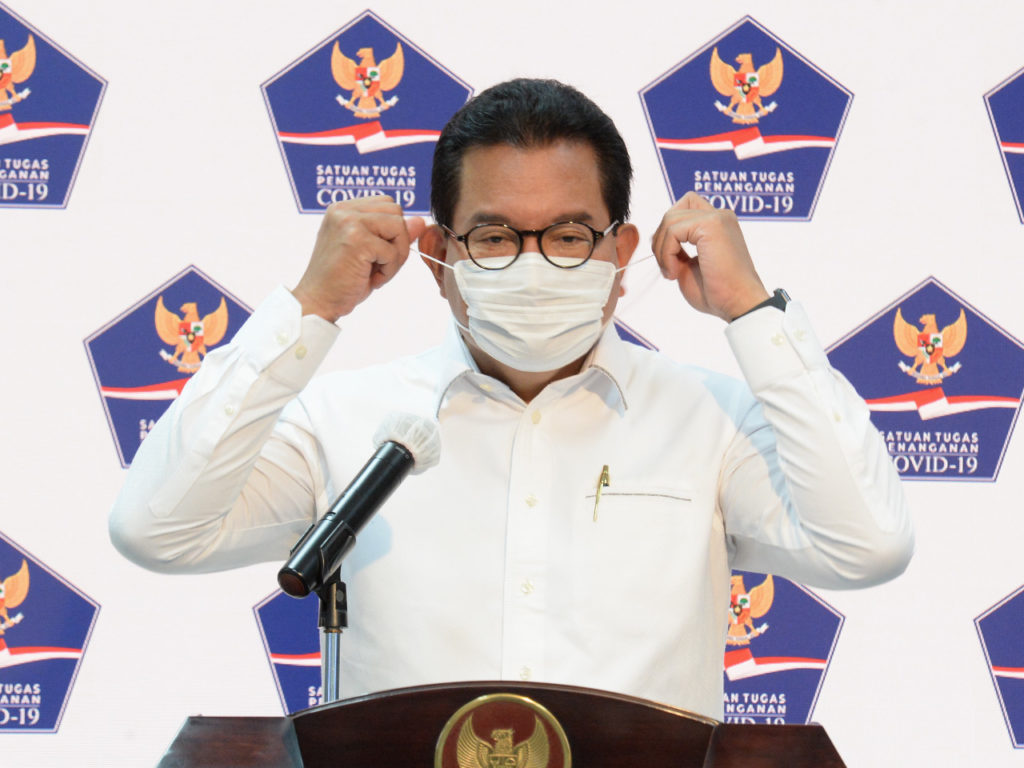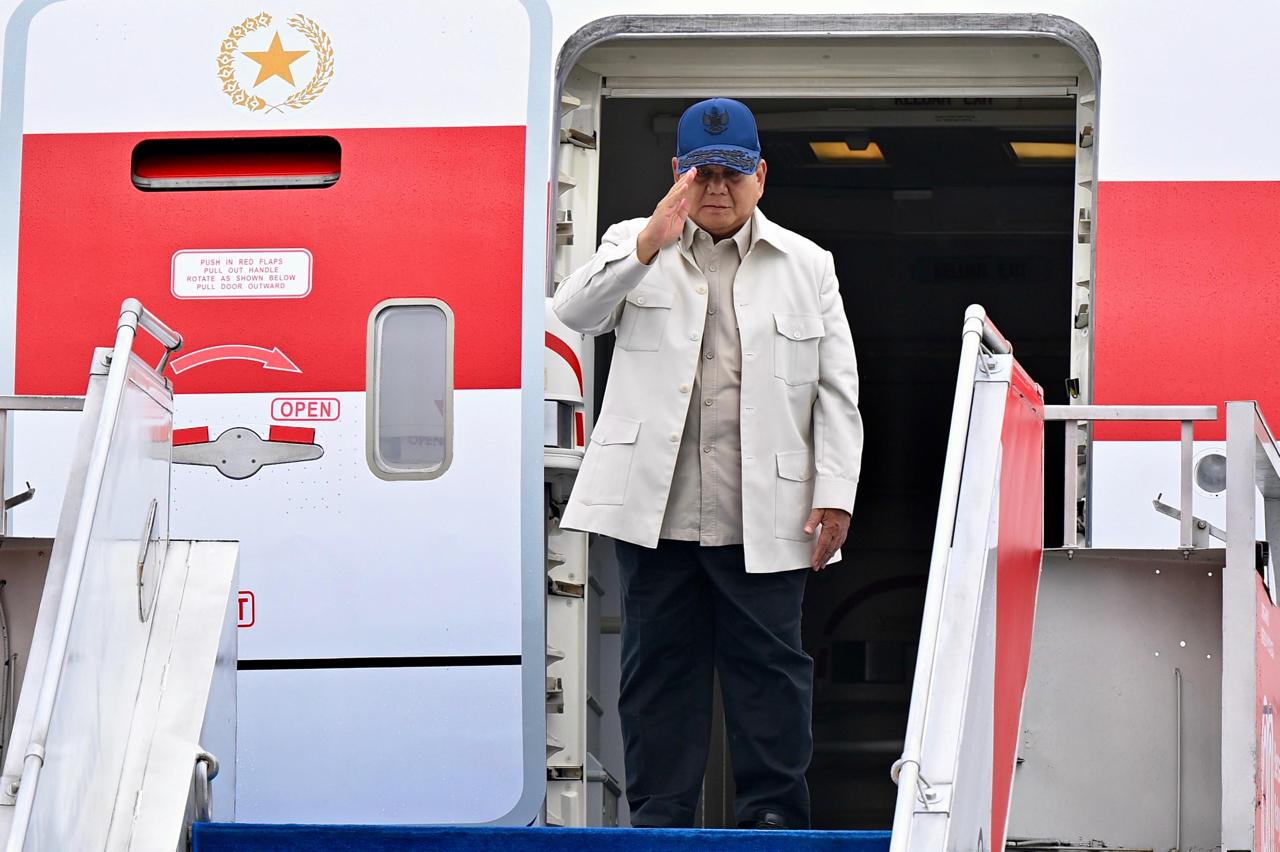COVID-19 Recovery Rate Shows Positive Trend in Various Regions: Working Committee Spokesperson

COVID-19 Working Committee Spokesperson Wiku Adisasmito in a press conference at the Presidential Office, Thursday (24/9). (Photo by: BPMI)
Recovery rate for COVID-19 patients this week in various regions has showed a positive trend with a rise of 35.8%, according to Spokesperson for the COVID-19 Working Committee Wiku Adisasmito.
“National recovery rate in August stood at 72.87% and it is a positive achievement because it exceeds the global figure,” Wiku said in a press conference at the Presidential Office, Jakarta, Thursday (24/9).
As of 24 September, there are 191.853 patients who have been discharged (73.2%), 4,634 additional new cases, 60,064 active cases (22.9%), and 10,105 deaths (3.9%).
Meanwhile, the average of global active cases stood at 23.16%, recovery rate at 73.77% and fatality rate at 3.05%.
According to a weekly analysis as of 20 September, Wiku continued, five provinces with positive recovery rate above that of the national average are North Maluku with a recovery rate of 89.71%, Gorontalo (87.19%), North Kalimantan (86.09%), Bangka Belitung Islands (84.89%) and North Sulawesi (83.51%).
In the meantime, provinces with the highest number of recovery cases are Capital Jakarta with a rise of 1,540 cases, West Java (1,093 cases), Central Java (845 cases), Aceh (730 cases) and Riau Islands (247 cases).
To that end, Wiku called on local governments in top three provinces with the highest rate of recovery to adopt preventive measures, among others by treating mild patients in centralized quarantine or in hotels,
In the meantime, patients with severe symptoms can be treated at hospitals, he added. Encouraging patients to maintain physical fitness and consume protein, providing vitamins and food supplement, and managing stress and exercise for COVID-19 patients in hospitals, as well as monitoring independent isolation patients are also important, he added.
Moreover, improving investigative capacity is also important so that cases can be handled early on and the number of inspection laboratories can be increased, he added.
“Let us not be complacent because positive achievements must be continuously improved and maintained so there are zero cases in the provinces,” he said.
In addition, Wiku also said that out of 514 regencies / cities, almost 70% of which had a recovery rate above 50% and 25 regencies / cities with 100% recovery.
“Provinces and regencies with a recovery rate below 25% must intensify 3T (tracing, testing, and treatment), and if you need help, please contact the Central Working Committee,” he said.
Wiku also reminded the public to anticipate rainy season in various areas that can pose a risk to the COVID-19 transmission.
“Public discipline to adhere to strict health protocols by wearing a face mask, maintaining physical distancing and washing hands, and maintaining cleanliness can reduce the potential for transmission,” he said.
Regarding office cluster, Wiku said office managers need to be transparent in reporting COVID-19 cases in its environment to local health office and to carry out further tracing to get close contact and coordinate with the local health office.
Wiku also reiterated the importance of implementing health protocols in the office environment and business owners must follow local government regulations regarding restrictions on workers who are allowed to work according to risk zoning. (Communication Team of the COVID-19 Mitigation and National Economic Recovery Working Committee/EN)
Translator: Muhardi
Reviewed by: M. Ersan Pamungkas








